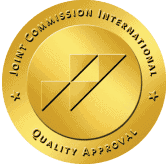You deserve compassionate, evidence-based treatment that addresses both the physical and psychological aspects of benzodiazepine dependence. Professional treatment centers understand that Valium addiction is a serious medical condition requiring specialized care and medical supervision.
What are the warning signs of Valium addiction?
You may be experiencing Valium addiction if you notice these concerning symptoms and behaviors. Recognizing these signs is the first step toward getting the help you need:
Physical warning signs you might experience:
- Taking larger doses than prescribed or more frequently
- Experiencing withdrawal symptoms when you try to stop
- Developing tolerance requiring higher doses for the same effect
- Physical dependence making it impossible to function without Valium
- Drowsiness, confusion, or impaired coordination
- Memory problems or difficulty concentrating
- Slurred speech or slowed reflexes
- Muscle weakness or tremors
Behavioral changes that indicate addiction:
- Doctor shopping to obtain multiple prescriptions
- Using Valium in dangerous situations like driving
- Continuing use even when it causes problems in relationships or work
- Lying about your Valium use to family or healthcare providers
- Neglecting responsibilities to use Valium
- Isolating yourself from friends and family
- Spending excessive time obtaining, using, or recovering from Valium
- Unable to control or reduce your Valium use
Psychological symptoms you may notice:
- Anxiety or panic when you can’t access Valium
- Depression or mood swings
- Irritability or agitation
- Obsessive thoughts about obtaining or using Valium
- Loss of interest in activities you once enjoyed
- Feeling unable to cope with daily stress without Valium
Why is Valium addiction so dangerous?
Valium addiction poses serious health risks that require immediate professional attention. Understanding these dangers can motivate you to seek the treatment you need right away.
Life-threatening withdrawal complications: Benzodiazepine withdrawal can be medically dangerous and potentially fatal without proper supervision. You may experience seizures, severe anxiety, hallucinations, or delirium tremens. Medical professionals report that approximately 10-25% of people withdrawing from benzodiazepines experience seizures without proper medical management.
Overdose risks increase dramatically: When you combine Valium with alcohol or opioids, your risk of fatal overdose increases exponentially. The CDC reports that benzodiazepines were involved in approximately 12,499 overdose deaths in 2021, representing a significant increase from previous years.
Long-term health consequences: Chronic Valium abuse can cause permanent cognitive impairment, memory problems, and increased risk of dementia. You may also experience persistent anxiety, depression, and difficulty functioning without the medication.
Impact on daily functioning: Valium addiction affects your ability to work, maintain relationships, and care for yourself or your family. Many people report losing jobs, damaging important relationships, and experiencing financial hardship due to their addiction.
What does professional Valium addiction treatment involve?
Professional treatment centers offer comprehensive programs designed specifically for benzodiazepine addiction. You’ll receive evidence-based care that addresses both the medical and psychological aspects of your addiction.
Medical detoxification and stabilization: Treatment begins with medically supervised detox where healthcare professionals gradually taper your Valium dosage to prevent dangerous withdrawal symptoms. This process typically takes several weeks and requires 24/7 medical monitoring to ensure your safety.
Comprehensive treatment programs available: You can access different levels of care based on your specific needs and circumstances:
Drug rehab programs provide intensive, round-the-clock care in a residential setting where you’ll receive medical supervision, individual therapy, group counseling, and educational sessions about addiction and recovery.
Partial hospitalization program (PHP) offers intensive daily treatment while allowing you to return home each evening. You’ll participate in therapy sessions, medical monitoring, and skill-building activities for several hours each day.
Intensive outpatient program (IOP) provides structured treatment sessions multiple times per week while you maintain your work or family responsibilities. This program includes individual counseling, group therapy, and ongoing medical support.
Outpatient program (OP) offers flexible scheduling for ongoing therapy, medication management, and support group participation as you continue your recovery journey.
How effective is professional Valium addiction treatment?
Evidence-based treatment for Valium addiction shows significant success rates when you commit to comprehensive care. Professional treatment centers report success rates between 70-80% for clients who complete their recommended treatment programs.
Proven therapeutic approaches: Cognitive Behavioral Therapy (CBT) has demonstrated particular effectiveness for benzodiazepine addiction, helping you identify triggers, develop coping strategies, and change thought patterns that contribute to addictive behaviors.
Medical management improves outcomes: When you receive proper medical supervision during withdrawal and early recovery, your chances of successful long-term sobriety increase dramatically. Medical professionals can address co-occurring mental health conditions and provide medications to ease withdrawal symptoms safely.
Comprehensive care addresses all aspects: Treatment centers that address both the physical dependence and underlying psychological factors achieve the highest success rates. You’ll work with a team of medical professionals, therapists, and counselors who understand the complexities of benzodiazepine addiction.
What makes Valium addiction treatment different from other substances?
Benzodiazepine addiction requires specialized knowledge and treatment approaches that differ significantly from other substance abuse treatments. You need professionals who understand the unique challenges of Valium dependence.
Extended withdrawal timeline: Unlike other substances, Valium withdrawal can last for months due to the medication’s long half-life. You may experience protracted withdrawal syndrome (PAWS) where symptoms persist for several months after your last dose.
Medical complexity requires expertise: Valium affects your brain’s GABA receptors, creating physical dependence that requires careful medical management. Abrupt discontinuation can cause life-threatening seizures, making professional supervision essential for your safety.
Dual diagnosis considerations: Many people using Valium have underlying anxiety disorders or other mental health conditions that require simultaneous treatment. You need integrated care that addresses both your addiction and any co-occurring mental health issues.
The most effective treatment approaches for Valium addiction
Professional treatment centers use evidence-based methods specifically designed for benzodiazepine addiction. These approaches have been proven effective through extensive research and clinical experience.
Medically supervised tapering: Healthcare professionals create individualized tapering schedules that gradually reduce your Valium dosage over weeks or months. This approach minimizes withdrawal symptoms while allowing your brain to adjust slowly to functioning without the medication.
Cognitive Behavioral Therapy (CBT): CBT helps you identify thought patterns and behaviors that contribute to your Valium use. You’ll learn practical coping strategies for managing anxiety and stress without relying on medication.
Dialectical Behavior Therapy (DBT): DBT teaches you emotional regulation skills, distress tolerance techniques, and mindfulness practices that support long-term recovery from benzodiazepine addiction.
Group therapy and peer support: Connecting with others who understand your experience provides valuable support and accountability. Group sessions allow you to share experiences, learn from others, and build a recovery community.
Family therapy and education: Treatment centers often include family members in the recovery process, providing education about addiction and teaching communication skills that support your long-term sobriety.
What to expect during Valium addiction treatment
Understanding the treatment process can help reduce anxiety about seeking help. Professional treatment centers follow established protocols designed to ensure your safety and maximize your chances of successful recovery.
Initial assessment and evaluation: When you first contact a treatment center, you’ll undergo comprehensive medical and psychological evaluations. Healthcare professionals will assess your Valium use history, current health status, mental health conditions, and social support systems.
Personalized treatment planning: Based on your assessment, treatment professionals will create an individualized plan that addresses your specific needs, circumstances, and recovery goals. This plan may include multiple levels of care as you progress through treatment.
Medical stabilization phase: If you’re physically dependent on Valium, you’ll begin with medically supervised detox. Healthcare professionals will monitor your vital signs, manage withdrawal symptoms, and adjust your tapering schedule as needed for your comfort and safety.
Active treatment participation: You’ll participate in individual therapy sessions, group counseling, educational workshops, and skill-building activities. Treatment centers typically provide 20-30 hours of structured programming per week during intensive phases.
Transition planning and aftercare: As you progress through treatment, professionals will help you develop a comprehensive aftercare plan that includes ongoing therapy, support group participation, and strategies for maintaining sobriety in your daily life.
Frequently asked questions about Valium addiction treatment
Treatment duration varies based on your individual needs, the severity of your addiction, and your response to treatment. Most people benefit from 30-90 days of intensive treatment, followed by ongoing outpatient support. Some individuals require longer-term care, particularly if they experience protracted withdrawal symptoms or have co-occurring mental health conditions.
Most insurance plans are required to cover addiction treatment services under the Mental Health Parity and Addiction Equity Act. Treatment centers typically work with major insurance providers and can help you understand your coverage options. Many facilities also offer payment plans or sliding scale fees to make treatment accessible.
Outpatient treatment can be effective for some people with Valium addiction, particularly those with strong support systems and less severe dependence. But many individuals benefit from starting with more intensive levels of care like PHP or drug rehab programs before transitioning to outpatient treatment.
Relapse is often part of the recovery process, and professional treatment centers are prepared to address setbacks with compassion and clinical expertise. If you experience a relapse, treatment professionals will reassess your needs and may recommend adjusting your treatment plan or moving to a more intensive level of care.
Contact Assure Recovery
Don’t wait another day to get the help you deserve. Valium addiction is a serious medical condition that requires professional treatment, but recovery is absolutely possible with the right support and care.
Call Assure Recovery today at (833) 530-0291 to speak with a compassionate treatment professional who understands what you’re going through. You can also visit our website to learn more about our comprehensive treatment programs.
Take the first step toward freedom from Valium addiction. Our experienced team is ready to help you develop a personalized treatment plan that addresses your unique needs and circumstances. You can also reach out through our contact page at https://assurerecovery.com/contact/ or learn more about our approach at https://assurerecovery.com/about/.
Your recovery journey starts with a single phone call. Contact Assure Recovery now – help is available, and you don’t have to face this alone.



